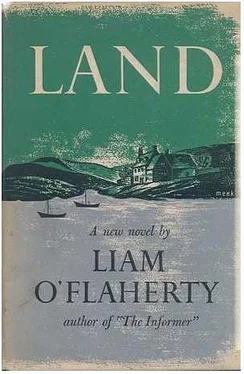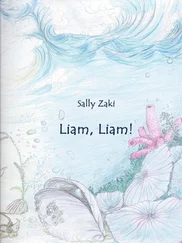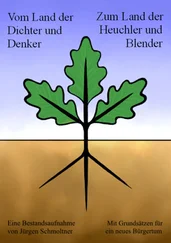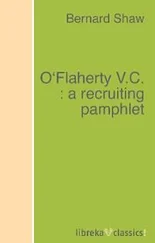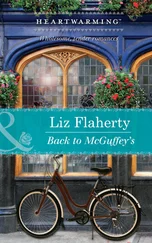Liam O'Flaherty - Land
Здесь есть возможность читать онлайн «Liam O'Flaherty - Land» весь текст электронной книги совершенно бесплатно (целиком полную версию без сокращений). В некоторых случаях можно слушать аудио, скачать через торрент в формате fb2 и присутствует краткое содержание. Город: London, Год выпуска: 2011, ISBN: 2011, Издательство: Bloomsbury Publishing, Жанр: Проза, на английском языке. Описание произведения, (предисловие) а так же отзывы посетителей доступны на портале библиотеки ЛибКат.
- Название:Land
- Автор:
- Издательство:Bloomsbury Publishing
- Жанр:
- Год:2011
- Город:London
- ISBN:9781448203888
- Рейтинг книги:3 / 5. Голосов: 1
-
Избранное:Добавить в избранное
- Отзывы:
-
Ваша оценка:
- 60
- 1
- 2
- 3
- 4
- 5
Land: краткое содержание, описание и аннотация
Предлагаем к чтению аннотацию, описание, краткое содержание или предисловие (зависит от того, что написал сам автор книги «Land»). Если вы не нашли необходимую информацию о книге — напишите в комментариях, мы постараемся отыскать её.
Land — читать онлайн бесплатно полную книгу (весь текст) целиком
Ниже представлен текст книги, разбитый по страницам. Система сохранения места последней прочитанной страницы, позволяет с удобством читать онлайн бесплатно книгу «Land», без необходимости каждый раз заново искать на чём Вы остановились. Поставьте закладку, и сможете в любой момент перейти на страницу, на которой закончили чтение.
Интервал:
Закладка:
“You are like your father,” he said. “Nothing ever frightens you.”
“To-day I was frightened,” she said.
“Really?” he said.
“The people were very hostile to us,” she said, “when we arrived in High Valley this morning. The four girls that came with me from Manister were in tears, because of the nasty things the Valley women shouted at them. The men were equally spiteful. They jeered at the idea of the Fenians being able to help them. In fact, they did their utmost to prevent Flatley and his comrades setting the charge of explosives under the bridge. At first they kept throwing volleys of stones. They stopped when Flatley fired his pistol into the air in warning. Then they shouted abuse and said that the bridge had been there for many generations, that a curse would fall on those who destroyed it and that its loss would cause famine in the Valley. I stood on a rock and tried to reason with them, saying that their supplies could come from Clash equally well by pannier over the northern pass. I pointed out to them that they would surely be evicted unless the police were halted. To do that, it was necessary to destroy the bridge. The continued existence of the bridge, I said, could not possibly benefit them if they were evicted from their houses and lands. On the contrary, it would then benefit only Captain Butcher, their enemy. My arguments made no impression on them. Indeed, they became still more hostile to me, shouting that they were rich people while they had a bridge over which carts with metalled wheels could travel, that it was a mortal sin to destroy a stone arch of such beauty, that all useful things were inspired by God and therefore sacred. Poor creatures! They loved their bridge, because it was the chief ornament of their humble lives. Later a young man on a white horse came with news that the Fenians were delaying the police. They listened attentively to his account of what was happening out there beyond the bog. For the first time they began to be impressed by the practical importance of the Fenian effort. After the young man had finished, they stood in a compact group on a grassy knoll and whispered to one another in awed tones, like a flock of startled birds. Then the sound of gunfire came from beyond the bog. That was when I got frightened.”
Michael pressed her closer to him and said:
“Didn’t you know that your father made me promise not to hurt anybody?”
“It was the hostility of the people that frightened me,” she said.
“I can’t imagine how the people could frighten you,” he said, “when you love them so much.”
“It was then that I decided to become a Catholic,” she whispered.
Michael sat up and looked at her in astonishment.
“What made you decide to do that?” he said.
“It would be difficult for me to esplain,” Lettice said as she also sat up and moved away from him a little. “Indeed, it would be quite impossible for me to tell you how I reached that decision. I only know that I no longer felt frightened after I had reached it. I felt liberated. I knew that the last barrier between the people and myself had been removed.”
“I understand,” Michael said.
“The people also understood,” Lettice cried excitedly. “They understood at once. Oh! It was glorious. The police came marching towards us across the bog. There were a few minutes of silence and extreme tension. Then the bridge rose into the air. The police halted. The people huddled closer together on the knoll, appalled at first by the noise of the explosion and the destruction of their beautiful arch. They gradually gained courage on seeing the confusion and anger of their enemies. So they crept silently towards the edge of the ravine. Then the police turned and marched back across the bog. The people at once found voice. Some of them embraced, shouted, sang, danced and threw things into the air. Others knelt reverently and thanked God. I again stood on the rock and told them that the fight was not yet won, that the police would encircle the Valley and try to enter by the northern pass, that barricades must be built at once up there, that the women must form companies and learn how to defend the barricades on the morrow. They gathered round me and shouted that they would fight to-morrow to the last drop of their blood. Then they insisted on doing me personal honour. They brought a straw arm-chair from the village and made me sit on it. Four young men placed poles under it and hoisted it to their shoulders. I was carried aloft that way to this northern village by the lake, with the people all marching in procession behind me, except for some children that ran in front, scattering flowers on the road and singing. It was very beautiful.”
Michael got to his feet after she had finished speaking. He folded his arms on his chest and looked towards the north.
“You don’t seem to be pleased with my story, Michael,” she said after a long pause.
As he remained silent, she also got to her feet and stood close beside him, looking towards the north. There were watch-fires burning up there, among the lofty crags on the horizon. Men walked to and fro, from fire to fire. They were Fenians on guard against a night advance by the police.
“Don’t you want me to become a Catholic?” she said.
He turned towards her abruptly and said:
“I wasn’t thinking of that.”
“Of what were you thinking?” she whispered.
He walked over to a rock and leaned against it. She came and put her arm about his shoulders.
“When you spoke of feeling liberated,” he said after another long silence, “I remembered the night I joined the Fenians, when I was sixteen. It must have been the very same emotion that you experienced to-day.”
“Tell me about it,” Lettice said.
“I think I told you that my mother took me to Dublin,” he said, “after my father was hanged and that she died shortly afterwards and that my Uncle John adopted me.”
“You did,” Lettice said.
“I was only a year old at that time,” he continued. “Uncle John hated having to take care of me. He was becoming famous as a surgeon in Dublin and he was afraid that his connection with the son of a hanged rebel might injure his career at a crucial moment. So he kept me practically a prisoner in his house during my early childhood. Nobody ever came to visit us. He was a bachelor. He had all his meals at his club except breakfast. I saw him only on Sunday mornings. The servant, an old woman called Kate, left me with him in the dining-room while she was getting dressed to escort me to nine o’clock Mass. My uncle would stare at me in silence from time to time until he had finished eating. Then he would fold his napkin carefully, put his elbows on the table, hold up his hands close to his eyes and lecture me. He kept turning his hands back and forth, examining them minutely, while he spoke. He always said the same things, in a bored and hostile tone, about the evil of rebellion against constituted authority. From the very first, even while I was still little more than an infant, I knew by instinct to whom he was referring, although he avoided any mention of my father. I also knew that he hated me and that he looked upon me as a monster, whom he was condemned to shelter under his roof by circumstances beyond his control. I hated him in return, with the relentless passion of a child that is starving for want of affection. He was a handsome man, tall, of dignified carriage, with piercing blue eyes and prematurely grey hair that rose up straight from his forehead in a little wall. He had amazing hands, delicate like those of a woman and so long-fingered that they almost looked distorted. He was always toying with them, examining them close to his eyes, stroking them, washing them, rubbing oil into them and paring the nails. They were his chief stock in trade. They were said to be ‘inspired hands.’ Even then, they enabled him to demand enormous fees for performing operations. Such was the disgust he inspired in me that I even now feel offended, whenever I see a man look at his hands in the way Uncle John used to do. I tell you this so that you may understand how my mind had turned in upon itself, through loneliness and a sense of injury. At twelve I went to a boarding school, where I received further lectures about the evils of rebellion against constituted authority. Morning and evening, day after day, they tried to turn me into an obedient slave of the English. Relieved of the embarrassment caused by my presence, my uncle bought a large house in the most fashionable part of town, engaged a staff of servants and began to entertain on a grand scale. During the holidays, he made me keep out of the way. In spite of that, I sometimes overheard conversations when there were guests in the drawing-room. Nearly always, as if Fate would have it so, I overheard vulgar jokes about Irish people. The majority of the guests were always English, officials and high officers of the garrison. My uncle was cultivating them as part of his campaign to secure a title. I noticed that his English guests had no respect for him. They would practically order him, just as if he were a lackey of theirs instead of being their host, to tell one of his shameful stories about the customs and oddities of speech and religious beliefs prevalent among our peasants. I was shocked to see that Uncle John, whom I had hitherto known as a solemn and dignified man, was a garrulous buffoon in the presence of these English people. Once I even saw him go down on his knees and crawl across the carpet barking like a dog, in order to make them laugh. After that, my hatred for him turned into contempt. I realised that the wretched man was but a single result of the oppression that was degrading the whole mass of our nation. A far more terrible hatred began to gather within my heart. I used to wander from our part of the city into the slums along the quays on the north side. It gave me a morose satisfaction to be among the dregs of the population, as if their rags and their bestial houses and their obscene language were a justification of my terrible anger. One Sunday morning, shortly after I had turned sixteen, I heard a ballad-singer recite a lament for my father, near a crowd of men that were playing pitch-and-toss on an open space by the Customs House. I bought one of the ballads and read it at once. It gave a detailed account of the events that led to my father’s death. I asked the man if he knew the author of the ballad. At first he refused to tell me. Then I said that it was written about my father and gave him proof of my identity. He became friendly at once and told me that the author was Father Francis Kelly. I made up my mind on the spot. Three days later, I set out across Ireland on foot with the ballad-singer, carrying a small bundle over my shoulder at the end of a stick. I had left a note for my uncle, telling him that I was determined to follow the road my father had taken and warning him that it was useless trying to interfere with me. That was the last contact I had with him. Years later, I heard that he had been made Sir John Corcoran by Queen Victoria and that he had gone to live in London. I soon discovered that the ballad-singer was really a Fenian organiser, trying to rally the fighting spirit of the people after the failure of the ’67 rising. We talked to groups of Fenians here and there. Some of them were still living out on the hills as outlaws. They all accepted me with enthusiasm on account of my father. I took the Fenian oath one night before a camp fire on a hill near Ballinasloe.”
Читать дальшеИнтервал:
Закладка:
Похожие книги на «Land»
Представляем Вашему вниманию похожие книги на «Land» списком для выбора. Мы отобрали схожую по названию и смыслу литературу в надежде предоставить читателям больше вариантов отыскать новые, интересные, ещё непрочитанные произведения.
Обсуждение, отзывы о книге «Land» и просто собственные мнения читателей. Оставьте ваши комментарии, напишите, что Вы думаете о произведении, его смысле или главных героях. Укажите что конкретно понравилось, а что нет, и почему Вы так считаете.
